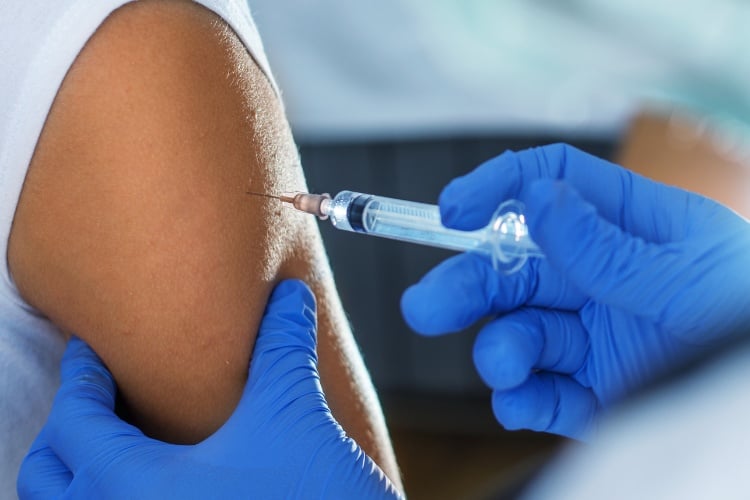Restrictions on restaurants have significantly relaxed around the country, meaning that staff are being called in, re-hired, and on-boarded to meet the demand of diners returning. As restaurant operators navigate training, scheduling, and management they are also still faced with the responsibility of protecting the health and safety of their team members. Should operators encourage their employees to get vaccinated? Can they make it mandatory? As vaccines eligibility approaches for restaurant staff, now is the time for operators to begin planning the messaging and policies they will implement.
While it is true vaccines are becoming more widely available, they are not necessarily accessible to restaurant workers across all states. In fact, only about one third of states1 are allowing restaurant staff to get shots. Restaurant operators and employees can find out if they are eligible for vaccination in the Back Of House State-By-State Guide.
Once vaccination appointments are available to restaurant employees, it becomes a question of appointment availability. Restaurant operators will want to be mindful of their state’s regulations, as some may require employers to initiate the vaccination eligibility process with the state for their workers. The National Law Review suggests operators carefully consider “encouraging, recommending, or incentivizing” vaccination for their employees over a mandate due to the legal and practical considerations.2 While there are laws supporting the decision to require employees receive a vaccination, The National Restaurant Association further discusses some of the legalities surrounding mandatory vaccination that operators need to consider.
Communication will remain crucial as operators welcome their staff and diners back. Ongoing micro-training sessions can help new and returning team members stay on top of the additional tasks related to social distancing and sanitization. These check-ins are also a great opportunity to discuss how employees are feeling about vaccinations and provide educational resources to answer questions or ease concerns. It is in everyone’s best interest that employees feel comfortable speaking up-and it is on restaurant management to provide opportunities for people to discuss their concerns privately as well.
Creating a supportive environment for employees will be key if operators want their full teams to be vaccinated. Some employees may be hesitant to make vaccine appointments out of fear of lost hours. Operators can relieve this stress by offering to provide employees with time off with pay (two to four hours)-and simply ask that each employee provides proof of vaccination in order to qualify. As restaurant teams begin setting their vaccination appointments, operators should also carefully consider adjusting work schedules, as vaccine side effects are not uncommon-particularly in the 24-hours after receiving a shot.
As operators continue to provide diners with transparent communication about their health and safety solutions, staff vaccination statuses may seem like information worth sharing. However, the National Law Review warns operators that discussing the status of individual workers may be problematic because of privacy laws.2 Restaurant operators will want to steer clear of any right to privacy violations and only share general information about their plans for encouraging vaccinations.
There is growing frustration from the restaurant industry as operators and employees await vaccine eligibility, and rightly so considering these frontline workers regularly spend their time around unmasked diners.3 As vaccinate eligibility approaches, it seems unlikely that mandatory vaccinations will become an industry standard.4 It will ultimately be a restaurant operator’s task to foster a workplace that encourages employees to seek vaccination and provides support in following through with the process.
Sources:
- N.Y. Times: As more of the U.S. returns to indoor dining, restaurant workers clamor for vaccine access.
- The National Law Review: Restaurant Workers Qualify for Vaccines in Some States; May Qualify in Others Soon
- The Chronicle: With Washington's Grocery-Store Workers Now Eligible for COVID-19 Vaccines, These Chefs Say Restaurant Workers Should Be Too
- CNBC: Restaurants push for more access to Covid vaccine, but unlikely to force workers to receive it





.png)

.png)
